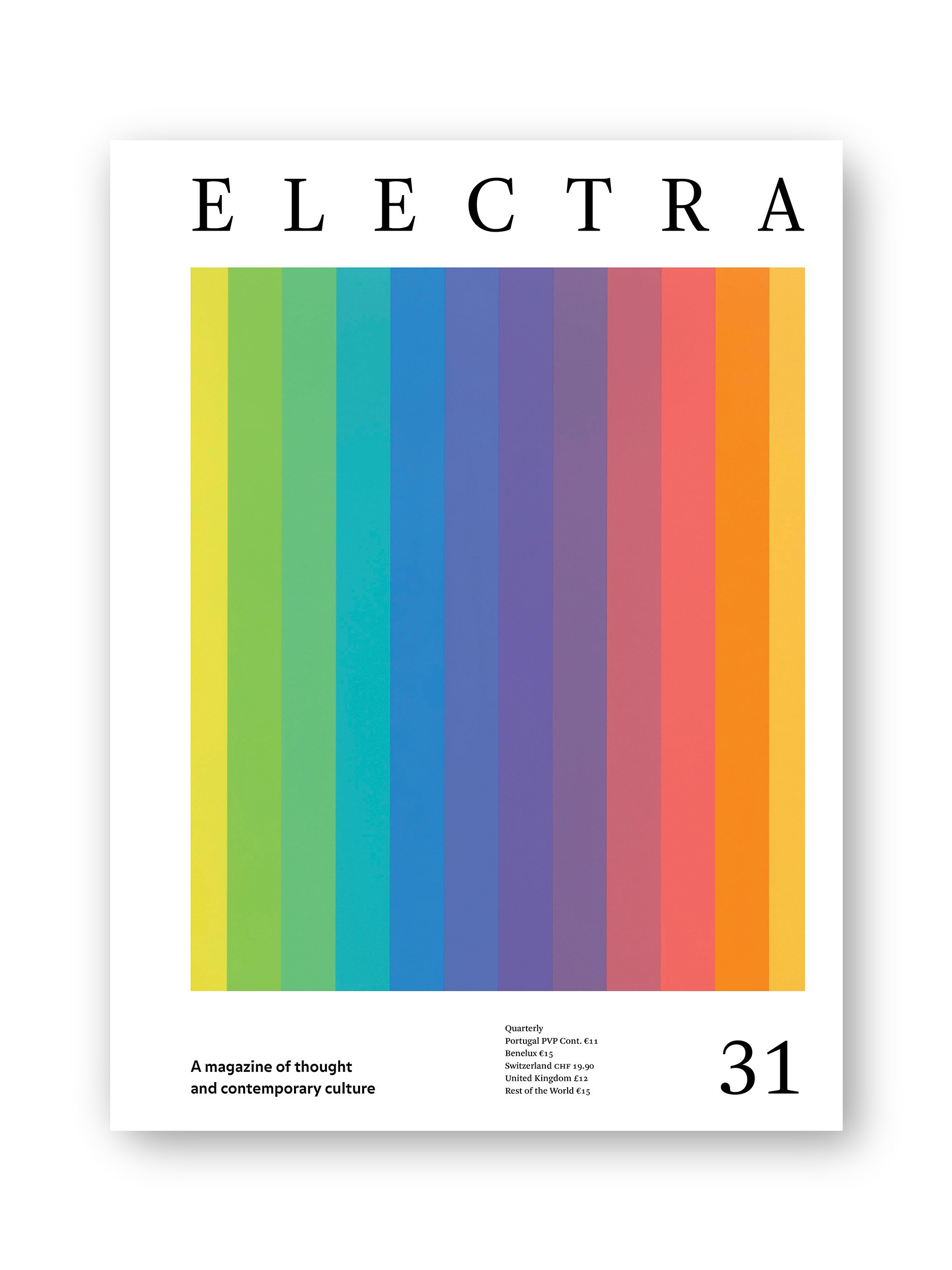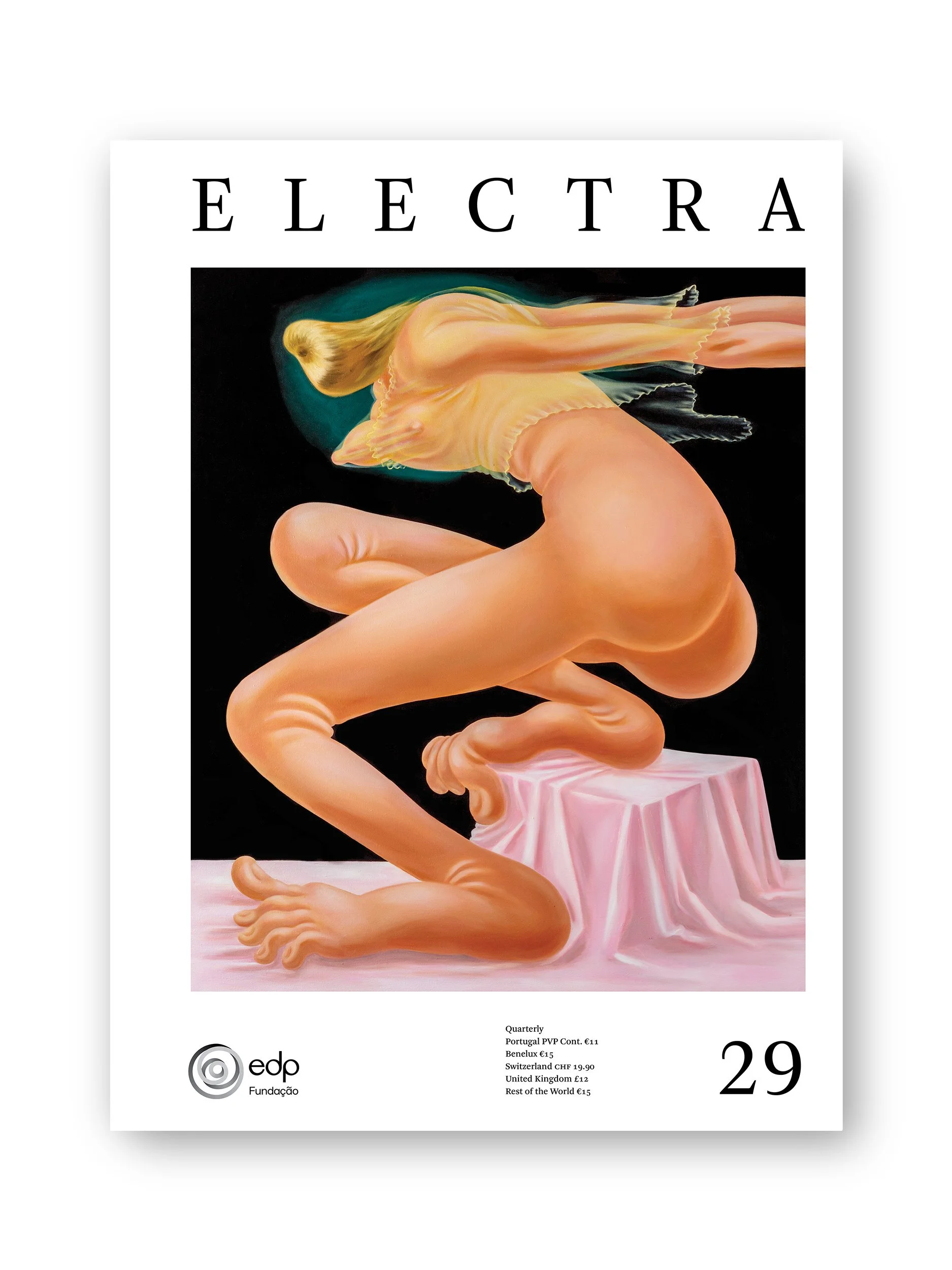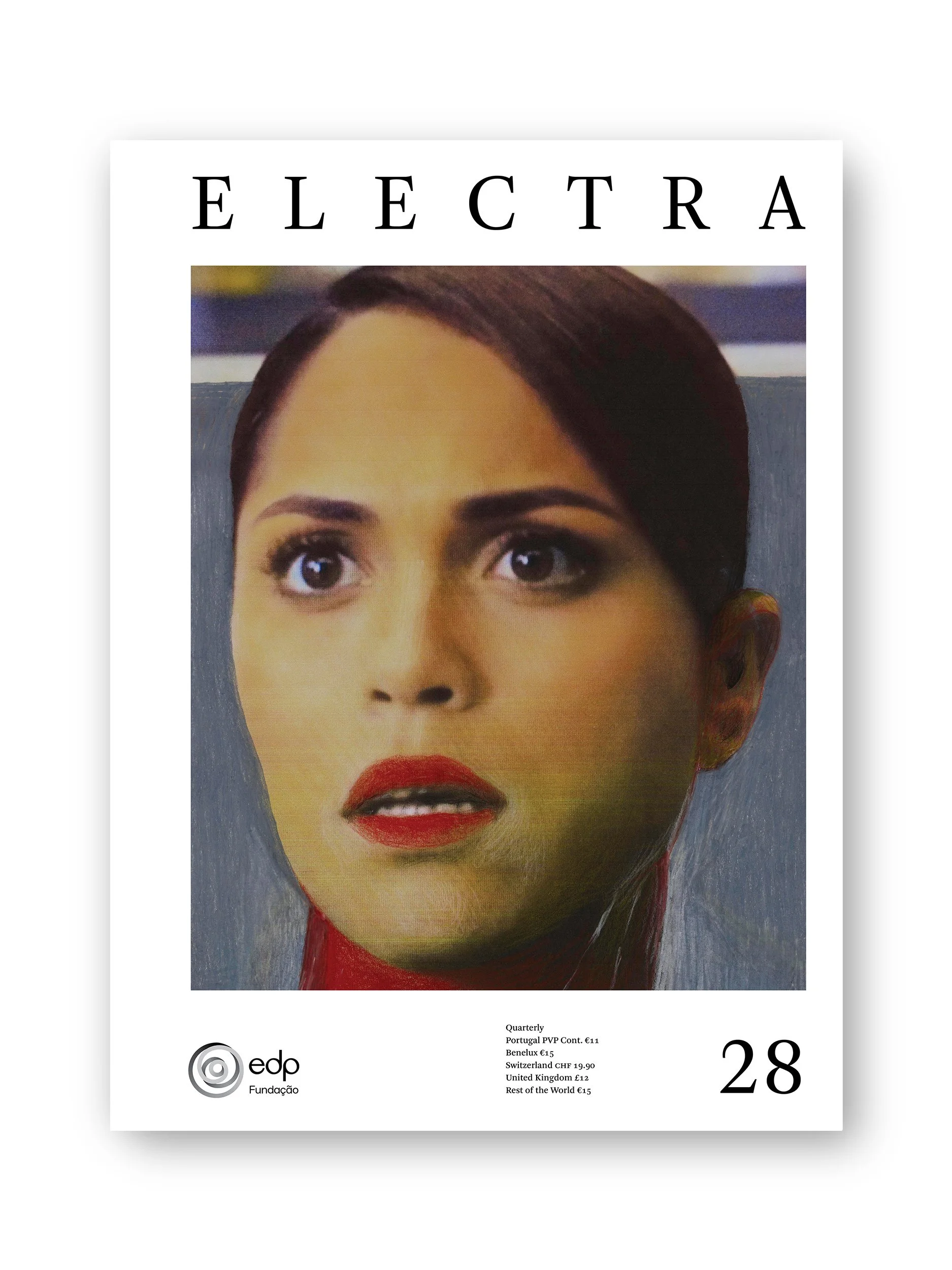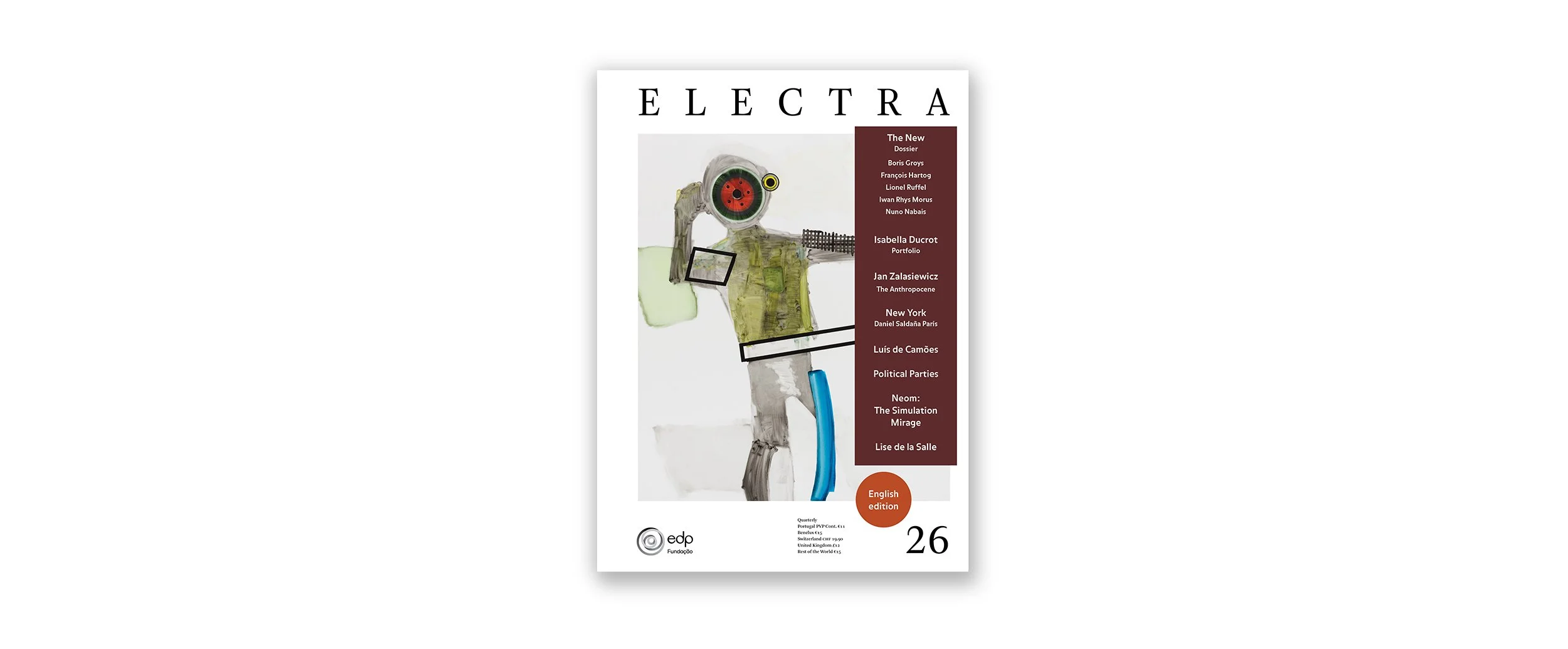....Electra 18 / City, Countryside..Electra 18 / Cidade, Campo....
















....Electra 18 / City, Countryside..Electra 18 / Cidade, Campo....
....
The subject “City, Countryside” is key to understanding our times, a theme which touches all areas of political, economic, social and cultural life. In our variously technological and ecological, narcissistic and massified, playful and amnesiac days, this theme inhabits the screens of all the systems, devices and equipment that populate our daily lives. It induces radical changes in life, generates hopes and misunderstandings, creates illusions and disillusions, sparks imaginations and urgencies. It is simultaneously concrete and abstract, individual and collective, economic and social, anthropological and cultural. “City, Countryside” is thus the central “Subject” of the next issue of Electra, which includes texts and interviews with Pedro Ignacio Alonso, Yves Cabannes, Joëlle Salomon Cavin, Jorge Gaspar, António Guerreiro, Raúl Cerveira Lima, Jeff Malpas, and Thierry Paquot, with an editorial preface by José Manuel dos Santos and António Soares.
The “First Person” section features an interview with Eyal Weizman, founder and CEO of Forensic Architecture, an agency which uses architecture as material legal evidence in investigations designed to identify, reconstruct and denounce violence. In this interview with Afonso Dias Ramos, Weizman covers a decade of work which crosses art and forensic analysis, journalism and law.
German filmmaker and writer Alexander Kluge, who has devoted his life to thinking about images and their place in culture, is the author of the “Portfolio” for issue 18 of Electra. For this work, this fundamental figure of contemporary critical thought establishes a dialogue with one of his collaborators, the author Ulrike Sprenger, and with Leander Gussman, a researcher of artistic and cultural studies. This is a conversation made up of words and images, a verbal-visual composition that constitutes, through its originality and interest, a fundamental document.
The "Book of Hours" section looks into some unpublished pages from the diaries of the artist Graça Morais. Corresponding to various moments of her career, the entries run alongside her vast body of recognised work, creating a discontinuous but ongoing dialogue with it. The “Metropolitan” section presents O Problema da Habitação [The Housing Issue], a project by photographer Daniel Malhão featuring a series of pictures taken during his rambling through the cities of Lisbon and Vienna, which is accompanied by an essay by art critic and curator Delfim Sardo.
Also in this issue of Electra, on the centenary of the death of Marcel Proust, renowned specialist Jean-Marc Quaranta shows how the great French writer's work and all the research it has generated force us to look at his life in a different way, changing the very literary status of the figure of the author; Italian critic and essayist Alfonso Berardinelli writes about the German poet, essayist and novelist Hans Magnus Enzensberger; Indian writer Navtej Sarna publishes an original story; Viriato Soromenho-Marques analyses discourses of nationalism and war euphoria cultivated in the German cultural and intellectual environment of the First World War; António Guerreiro comments on a quote by architectural historian and writer Paulo Varela Gomes; Bernardo Vaz de Castro reads Hölderlin’s Madness by Giorgio Agamben; and Luhuna de Carvalho writes about the word “Oligarch”.
.
Softcover, 27 x 20 cm, 280 pages
—
..
“Cidade, Campo” é um tema indispensável para a compreensão do nosso tempo e que tem abertura para todos os domínios da vida política, económica, social e cultural. Nos nossos dias tecnológicos e ecologistas, narcisistas e massificados, lúdicos e amnésicos, este tema move-se nos écrans de todos os sistemas, dispositivos e equipamentos que povoam o nosso quotidiano. É um tema que induz mudanças radicais de vida, gera esperanças e equívocos, cria ilusões e desilusões, acende imaginações e urgências. É um tema concreto e abstracto, individual e colectivo, económico e social, antropológico e cultural. “Cidade, Campo” é, por isso, o “Assunto” central da próxima edição da Electra e conta com textos e entrevistas de Pedro Ignacio Alonso, Yves Cabannes, Joëlle Salomon Cavin, Jorge Gaspar, António Guerreiro, Raúl Cerveira Lima, Jeff Malpas, Thierry Paquot, e um editorial de José Manuel dos Santos e António Soares.
Na secção “Primeira Pessoa” é entrevistado Eyal Weizman, fundador e director da Forensic Architecture, uma agência que usa a arquitectura como prova material judicial levando a cabo investigações com o objectivo de identificar, reconstruir e denunciar a violência. Em entrevista conduzida por Afonso Dias Ramos, Weizman percorre uma década de trabalho, que cruza a arte e a análise forense, o jornalismo e o Direito.
O realizador e escritor alemão Alexander Kluge, que tem dedicado a sua vida a pensar as imagens e o lugar delas na cultura, é o autor do “Portfolio” da edição 18 de Electra. Para este trabalho, esta figura fundamental do pensamento crítico contemporâneo conversa com a escritora e sua colaboradora Ulrike Sprenger e com o investigador de estudos artísticos e culturais Leander Gussman; uma conversa que se faz de palavras e imagens, numa composição verbal-visual que constitui, pela sua originalidade e interesse, um documento fundamental.
Na secção “Livro de Horas”, dão-se a conhecer, correspondendo a tempos diferentes, algumas páginas inéditas dos cadernos dos diários da artista Graça Morais, que correm ao lado de uma vasta e reconhecida obra, desenvolvendo com ela um diálogo descontínuo, mas incessante e esclarecedor. Na secção “Metropolitano” é apresentado o projecto O Problema da Habitação do fotógrafo Daniel Malhão, um conjunto de imagens que resultam de um processo de deambulação pelas cidades de Lisboa e Viena, e que é acompanhado por um ensaio do crítico de arte e curador Delfim Sardo.
Neste número de Electra, e no centenário da morte de Marcel Proust, o reconhecido especialista Jean-Marc Quaranta mostra como a obra do grande escritor francês e todas as investigações que tem gerado obrigam a olhar a relação com a sua vida de outra maneira, mudando o próprio estatuto literário da figura do autor; o crítico e ensaísta italiano Alfonso Berardinelli escreve sobre o poeta, ensaísta e romancista alemão Hans Magnus Enzensberger; o escritor indiano Navtej Sarna publica uma original história inédita; Viriato Soromenho-Marques analisa os discursos nacionalistas e de euforia guerreira cultivados no ambiente cultural e intelectual alemão da Primeira Guerra Mundial; António Guerreiro comenta uma citação do historiador de arquitectura e escritor Paulo Varela Gomes; Bernardo Vaz de Castro lê a Loucura de Hölderlin, de Giorgio Agamben; e Luhuna de Carvalho escreve sobra a palavra “Oligarca”.
.
Capa mole, 27 x 20 cm, 280 páginas
—
....
“....”In fact, to raise the idea of countryside is really a way to avoid speaking about ecology, ecosystems and the environment. Let’s not forget that the countryside, understood as the agricultural or the rural, is not natural. ..Insistir na ideia de campo é uma maneira de evitar falar sobre ecologia, ecossistemas e o ambiente. Não podemos esquecer que o campo, entendido como o agrícola ou o rural, não é natural. ....”
“....The climate crisis, breaks in food chains, higher prices and less access to food from the other side of the world are raising awareness that will make it difficult to continue urban expansion. ..A urgência climática, a quebra das cadeias alimentares, as dificuldades de acesso e o aumento dos preços dos alimentos oriundos do outro lado do planeta estão a gerar uma consciência que tornará difícil continuar a expansão urbana. ....”
“....To go back to the country is to go back to a sense of from which we come and that is not exhausted by, nor fully evident in, the life of the city alone. ..Regressar ao campo é reencontrar o sentimento de estarmos no sítio de onde viemos, um sentimento que não se esgota nem é plenamente evidente na vida da cidade por si só. ....”
“....In his relationships with others, friends or servants, Proust appears much like the rest of us: adorable and unbearable, magnificent and odious, radiant in his generosity, naked in his anger, full of contradictions; without ceasing to be the author of an immense work, Proust is restored to human level. ..Nas suas relações com os outros, amigos ou empregados, Proust aparece como todos nós: adorável e insuportável, magnífico e odioso, resplandecente na sua generosidade, nu nas suas fúrias, cheio de contradições; sem deixar de ser o autor de uma obra imensa. Proust é restituído à sua dimensão de homem. ....”
“....Architecture is what brings together memory and evidence. You can no longer separate them as the law wants us to. The oral speeches are always entangled with materiality, and materiality can only come to manifest itself through human speech. The witness and the object become an entangled rhetorical device, and architecture mediates between the two of them. ..A arquitectura é aquilo que une a memória e a prova. Já não podemos separá-las como o Direito gostaria que fosse feito. Os discursos orais estão sempre enredados na materialidade, e a materialidade manifesta-se unicamente através da fala humana. A testemunha e o objecto transformam-se num só dispositivo retórico imbricado, e a arquitectura é aquilo que faz a mediação entre as duas coisas. ....”
“....While the immediate precedent of Enzensberger’s discourse is the long chapter devoted to the culture industry in Horkheimer and Adorno’s Dialectic of Enlightenment, in replacing the term ‘culture industry’ with the term ‘consciousness industry,’ something different and broader is being proposed. ..O precedente imediato do discurso de Enzensberger é o longo capítulo dedicado à indústria cultural na Dialéctica do Iluminismo, de Horkheimer e Adorno. Mas ao substituir o termo indústria cultural pelo termo indústria da consciência propõe algo diferente e mais amplo. ....”
-
....
Director / José Manuel dos Santos
Editor / António Guerreiro
Portfolio / Alexander Kluge
Published by Fundação EDP
Autumn 2022Softcover, 27 x 20 cm, 280 pages
ISBN 978 989 53696 45..
Director / José Manuel dos Santos
Editor / António Soares
Portfólio / Alexander Kluge
Publicado por Fundação EDP
Outono 2022
Capa mole, 27 x 20 cm, 280 páginas
ISBN 978 989 53696 52....












One of the most consistent and yet fully surprising architects working today, Álvaro Siza, Pritzker Prize shares his List spanning from fundamental editions on Alvar Aalto or Walther Gropius, to lesser-known Italian modernism, Brazil, critical history and philosophy, a striking novel, and poetry, from Portuguese to Greek and Persian masters.